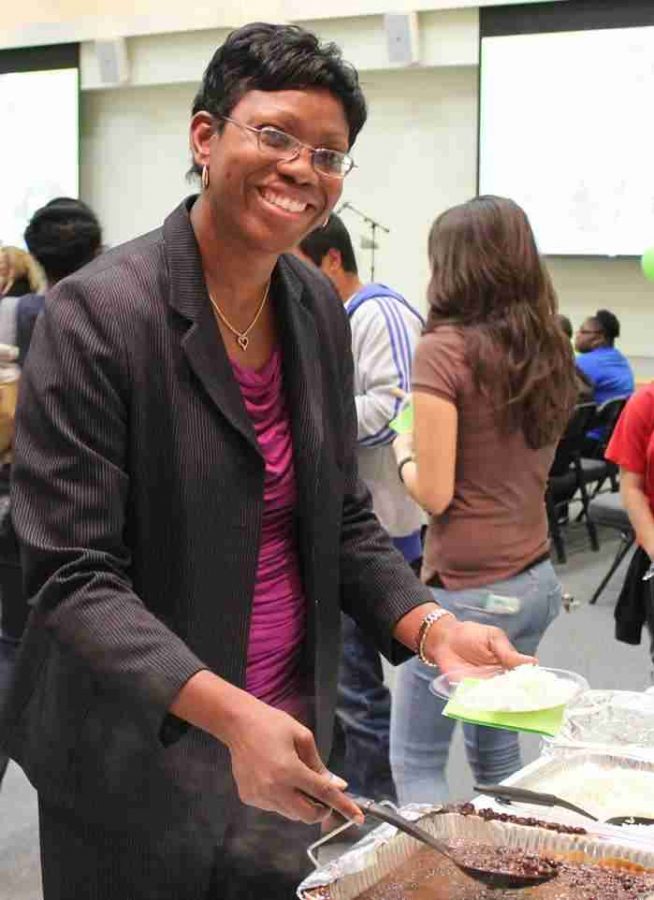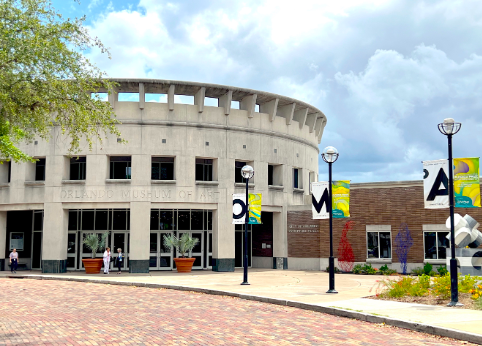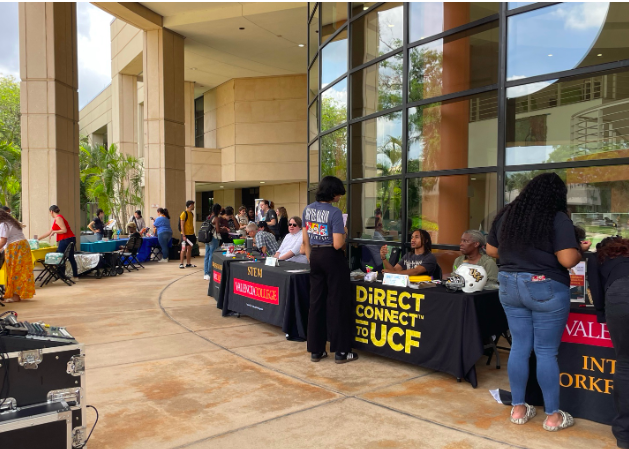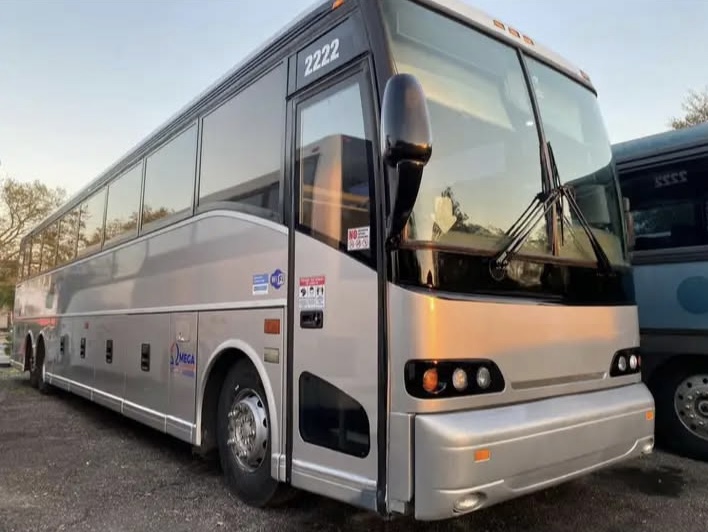WEST CAMPUS — The world’s wealthiest 10 percent have a yearly income of $12,000.
The Human Empathy Rights Organization’s (HERO) hunger banquet represented these figures by separating guests into classes that represented the world’s upper, middle and lower classes.
The event, which was developed by Oxfam America, aimed to bring awareness to poverty and hunger as a worldwide issue as opposed to just a local one. Oxfam America is one of 17 international branches of a worldwide relief effort.
“Last year, we had 100 people show up,” said Professor Subhas Rampersaud.
This year’s banquet had 55 people in attendance. By the luck of the draw, nine people were seated at upper-class tables that were set with silverware and the first course of a three-course meal. Chairs set on the three sides of the auditorium sat the 16 people who drew tickets that represented the world’s middle class demographic. The remaining thirty people sat on the floor with no pillow or cushion for the banquet, mirroring 60 percent of the world’s population living in poverty.
“We tend to live in this world with a mythical view that everything is fine and it’s not,” said Rampersaud.
Those who live in the lower class represent the sixty percent of the world’s population who make less that $2.70 a day. For this demographic, it is not uncommon for an entire day to revolve around gathering water for survival. According to Oxfam, even the most basic healthcare is unavailable and education is limited for children. Education for girls is even more difficult to come by.
Some in attendance were asked to move from upper class tables to the floor to mirror the economic that takes place. During a break in the presentation, buckets of rice were placed on the floor for guests in the lower class to eat that night. At the same time, guests seated at tables chose from a selection of dressings for the first course salad. Those seated in chairs were served a meal of rice, beans, and water.
“It was about 25 pounds of rice and 42 cans of beans, “ said HERO member Stephanie Feliciano.
Feliciano prepared the rice and beans for the banquet with help from her father.
“When you hear ‘hunger banquet,’ it’s kind of like an oxymoron,” said Feliciano. “It brings awareness.”
Feliciano had experienced first hand how it was to live without a home during high school. Unable to stay with her parents, she lived with friends.
“There was a time when I was living in my car,” said Feliciano.
Sam Gruber, a duel enrollment student seated in the middle class, spoke out during the question and answer portion of the event. Gruber, who is also a senior in high school, currently lived with her father who had recently taken in his two handicapped sisters and filed for bankruptcy.
“This is the best meal I’ve had in weeks,” said Gruber.
After the event, Gruber was given food to take home.
“It’s nice to see that people care,” said Gruber.
For more information on Oxfam America, visit www.oxfamamerica.org.







